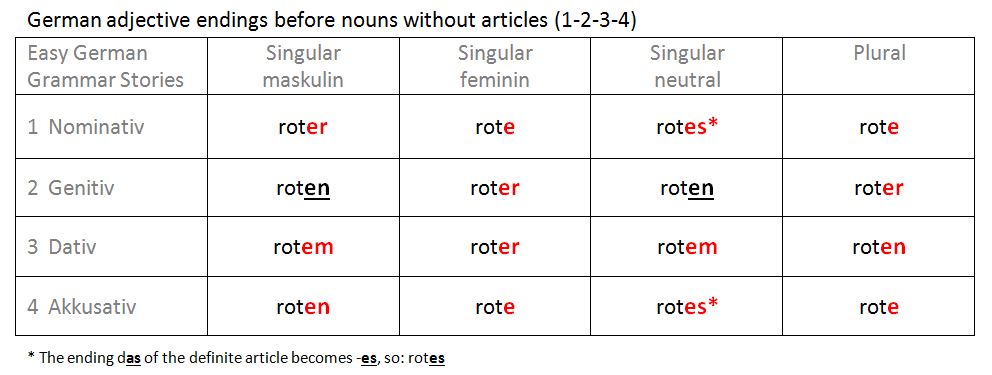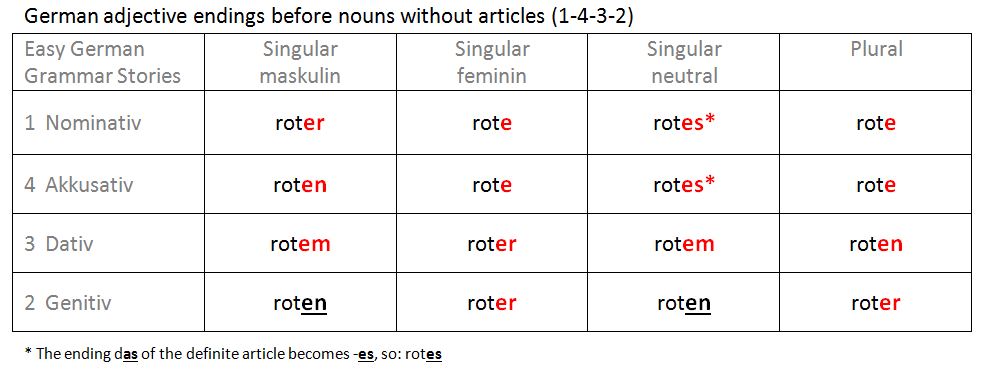der die das - stories
and other helpful books with explanations, tests and MP3-Download for effective German learning.
Easy German books for beginners
German articles and adjectives: step 4 of 4
Adjectives alone before nouns
Sometimes, the adjective is before the noun without an article.
1. In the case of uncountable nouns:
Ich esse nie rohes Fleisch. Ich trinke lieber roten Wein. Ich mag kalte Milch.
2. In the case of indefinite nouns in the plural (there is no indefinite article in the plural):
Er liest gerne spannende Bücher. Ich kaufe grüne Äpfel. In dem Restaurant stehen runde Tische.
Read the following sentences. What do you notice? Watch out for the adjective endings!
Nominativ (1):
Roter Wein schmeckt gut. Kalte Milch ist erfrischend. Frisches Bier ist lecker. Süße Äpfel sind gesund.
Akkusativ (4):
Kalten Kaffee mag ich nicht. Ich kaufe reine Seide. Wir benutzen echtes Leder. Ich sehe gern lustige Filme.
Dativ (3):
Cocktails mit starkem Alkohol sind gefährlich. Bei ruhiger Musik kann ich mich konzentrieren. Von altem Obst wird mir immer schlecht. Nach sonnigen Tagen folgt meistens Regen.
Genitiv (2):
Wegen starken Alkohols ist sie betrunken. Der Nährgehalt frischer Milch ist hoch. Der Preis guten Leders ist hoch. Die Männer schöner Frauen sind oft reich.
Right! The adjectives have the ending of the definite article!
Oh, in the genitive, it’s different! The adjectives before masculine and neutral nouns have
the ending -en! These are two exceptions.
So, you’re ready for an online exercise with all the articles and adjectives!
You can download this exercise as a PDF file. Exercise with all articles and adjectives!
Here you can download this explanation as a PDF file.
Choose the order that is easier for you:
Adjectives before the noun - without articles 1-2-3-4
Adjectives before the noun - without articles 1-4-3-2
To better memorize the declension, you can do three exercises in which all nouns are either only masculine, only feminine or only neutral.
Continue with: der, die, das? - easily learned!
Continue with: der die das lernen mit Geschichten




